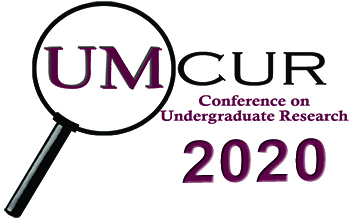Project Type
Presentation
Faculty Mentor’s Full Name
Joseph Eaton
Faculty Mentor’s Department
Journalism
Abstract / Artist's Statement
The opioid epidemic kills 47,600 people in the United States annually on average, which accounts for approximately 67% of all fatal overdoses. In addition to receiving medical treatment for addiction, opioid addicts require behavioral treatment as well. A peer support network, a system of peer mentors who help give emotional stability to addicts and maintain accountability, provide this crucial but often unattainable aspect of behavioral treatment. Mentorship support offers a long lasting relationship, in which recovering addicts will have continued support and are less likely to relapse, helping them to stay clean during and after medical treatment is completed. In this capstone, we will analyze existing peer support systems and develop a network platform that is transferable to government agencies and rehabilitation facilities in both the U.S. and other nations. We will design a website where opioid users, friends, family members, and members of a community affected by the crisis can find resources and connect with a network. We will develop a podcast highlighting the successes of the peer networking system in different use cases and health-related programs around the world. Opioids kill more people in the United States than any other drug, and while the heaviest casualties of the epidemic are in the U.S. and Canada, the research we have conducted suggests that this is a growing crisis in many other nations, from Australia to Egypt. Therefore it is imperative not only in American society, but within the global community as well, to develop exceptional rehabilitation programs to treat the rising number of addicts.
Category
Interdisciplinary (GLI)
The Power of Peers: Addressing the Opioid Epidemic through Peer Support Programs
The opioid epidemic kills 47,600 people in the United States annually on average, which accounts for approximately 67% of all fatal overdoses. In addition to receiving medical treatment for addiction, opioid addicts require behavioral treatment as well. A peer support network, a system of peer mentors who help give emotional stability to addicts and maintain accountability, provide this crucial but often unattainable aspect of behavioral treatment. Mentorship support offers a long lasting relationship, in which recovering addicts will have continued support and are less likely to relapse, helping them to stay clean during and after medical treatment is completed. In this capstone, we will analyze existing peer support systems and develop a network platform that is transferable to government agencies and rehabilitation facilities in both the U.S. and other nations. We will design a website where opioid users, friends, family members, and members of a community affected by the crisis can find resources and connect with a network. We will develop a podcast highlighting the successes of the peer networking system in different use cases and health-related programs around the world. Opioids kill more people in the United States than any other drug, and while the heaviest casualties of the epidemic are in the U.S. and Canada, the research we have conducted suggests that this is a growing crisis in many other nations, from Australia to Egypt. Therefore it is imperative not only in American society, but within the global community as well, to develop exceptional rehabilitation programs to treat the rising number of addicts.
